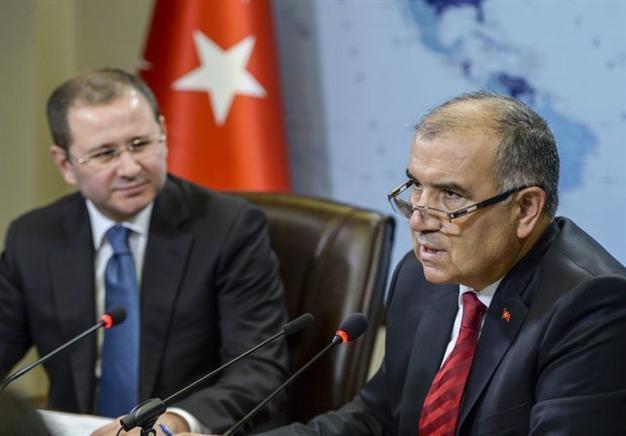Chinese, US, Japanese companies show interest in Turkey’s 3rd nuclear power plant: Minister
ANKARA

AA photo
Turkish Energy Minister Ali Rıza Alaboyun said plans have been made for Turkey’s third nuclear plant and Chinese, Japanese firms and U.S. companies have shown interest in an exclusive interview with the Anadolu Agency Editors’ Desk on Oct. 14.
“A third nuclear power plant is planned to be built in the northern area of İğneada [Kırklareli province]. We have been in talks with several companies. Chinese companies and U.S.-based Westinghouse have shown interest so far. We signed a memorandum of understanding. Japanese companies are also interested in the project,” he said.
The region in Kırklareli where the plant is planned to be built is famous for its floodplain forests.
Turkey’s first power plant project was undertaken by Russia’s Rosatom in the southern province of Akkuyu and Turkey’s second planned nuclear plant, to be constructed in the northern province of Sinop, was awarded to a Japanese-French consortium in May 2013.
Alaboyun also said Turkey has no energy issues with Russia amid rows over Syria.
‘No problem with Russia’
Turkish President Recep Tayyip Erdoğan said Turkey is a big consumer of Russia’s natural gas late on Oct. 6, speaking to journalists en route from Brussels to Tokyo.
“Losing Turkey would be a serious loss for Russia. If needed, Turkey can supply its natural gas from very different places,” he added.
Alaboyun said Erdoğan’s remarks were a response to questions regarding Syria.
“His [Erdoğan’s] answers about finding sources for natural gas and building the nuclear plant were interpreted as if we had problems with Russia. We have no issues with Moscow about energy. This should be known,” Alaboyun said during the interview.
“Russian gas imports constitute 60 percent of our total gas consumption. We import 14 billion cubic meters [bcm] from Russia via the Western line, and 16 bcm from Blue Stream. More than half of the gas we import is used to produce electricity, while the rest is used for industrial and household use,” he explained.
Alaboyun stressed the gas price discount Turkey is asking for from Russia and negotiations for the construction of the Russian-proposed Turkish Stream gas pipeline project are two different issues, and therefore should be discussed separately.
“We are the second biggest consumer of Russian gas after Germany. Since [Russian gas company] Gazprom sells cheaper gas to Germany, we wanted a price reduction. We have the right to revise gas prices every three years based on our gas contracts,” he explained.
“Gas price revisions with Moscow and the Turkish Stream pipeline project are different subjects. They should not be mixed together,” he added.
The Turkish energy minister also said that Russia has changed its mind frequently about the Turkish Stream gas pipeline project, and stressed that “Russia has not maintained a decisive attitude about the project.”
“First, Russia wanted to deliver 63 bcm of gas by constructing four pipelines under the Black Sea. Then, Alexei Miller [head of Gazprom] said last week that Russia decided to halve this to 31.5 bcm and to deliver it over two lines,” he said.
While 15.75 bcm of Russian gas over one line will be carried to Turkey via the Turkish Stream, Alaboyun said, “We have prioritized the project’s Turkish part. However, nothing is clear yet, it depends on Russia. Even the decision period for the TANAP project with Azerbaijan took around three years.”
